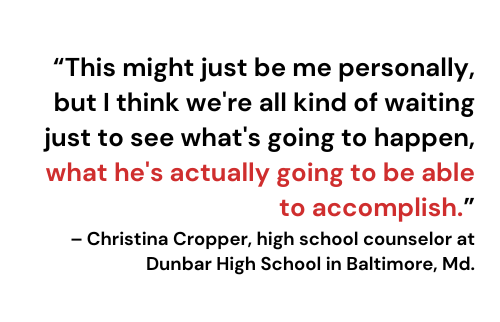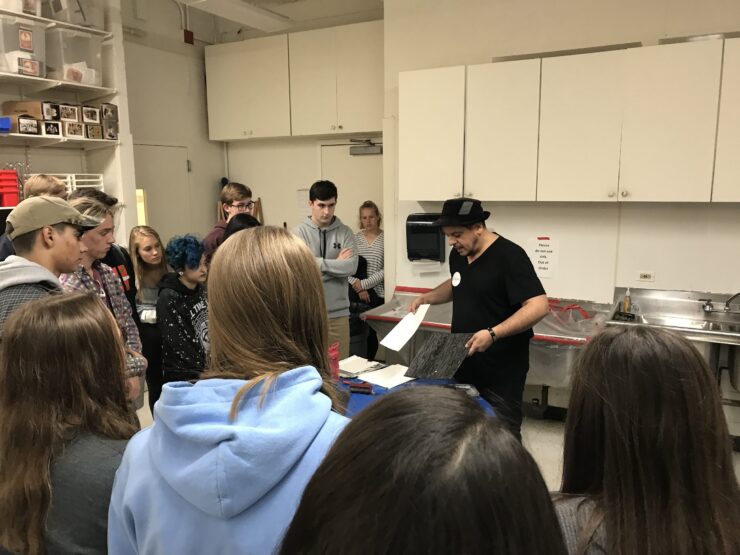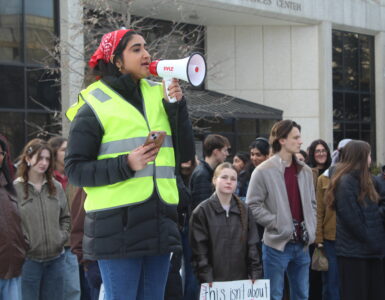Throughout Donald Trump’s presidential campaign, he set his sights on the education system and its offerings. Now that he’s won, school administrators and educators across the country wonder whether he’ll be able to implement many of his promises and whether those changes would have much impact on them.
As part of an initiative that aims to give parents more autonomy in their child’s education, Trump has promised to sign an executive order that would cut federal funding for schools that incorporate critical race theory, gender ideology or other “inappropriate racial, sexual or political content” in curricula.
Armed with the support of his secretary of education pick, Linda McMahon, he has said he intends to sign an executive order to reinstate “The 1776 Commission,” an advisory commission made up of 20 members appointed by Trump that enforces the incorporation of “patriotic” values in the classroom.
Among his biggest campaign platforms, however, has been his calls to dismantle the Department of Education as a way to “end education coming out of Washington, D.C.” and “send all education work and needs back to the States,” as his campaign website states.
![“For me personally, I don't know how much would be affected at the state level, or even at our local level, because a lot is done at our [local level]. … So I'm not hugely worried.” — Donna Norton, Grade 8 English Teacher at Bonny Eagle Middle School in Scarborough, ME “We have a lot of staff that are solely here to support very specific students. They know that in cases like this, their programs are the first ones cut, which is really unfortunate.” — Alessandra Portillo, administrative secretary and financial specialist at Diamond Elementary School in Gaithersburg, MD What Could A Trump Presidency Mean For Safe Spaces At Schools? “I'm really not worried about the Department of Education closing. What worries me is the shift in rhetoric that will then actually affect policy on a state and local level.” — Christina Cropper, school counselor at Dunbar High School in Baltimore, MD](https://thewash.org/wp-content/uploads/2024/11/Screenshot-2024-11-23-at-11.23.02 AM.png)
“On top of regular educators and paraeducators, we have a lot of staff that are solely here to support very specific students,” said Alessandra Portillo, administrative secretary and financial specialist at Diamond Elementary School in Gaithersburg, Maryland. “They know that in cases like this, their programs are the first ones cut, which is really unfortunate.”
Diamond Elementary School is a Montgomery County public school that hosts a nationally recognized support program for children on the autism spectrum among its standard course offerings. Portillo said that the school relies heavily on funding allocated by the Department of Education and federal grants to keep critical resources and programming available for children with special needs.
“A lot of these parents that send their kids here don’t have the specialized skills, training, or knowledge to be able to care for their kids [in] the way that they need,” Portillo said.
According to Portillo, the tone at most schools in the Washington region hosting specialized education programs has been one of anxiety, shock, and apprehension. Many are experiencing uncertainty about whether the changes Trump has promised on a federal level may influence them on a local level.
Not all educators are worried about potential changes, particularly those in states with greater local autonomy.
Donna Norton is an 8th grade English teacher at Bonny Eagle Middle School in Scarborough, Maine. She’s not particularly worried about incoming changes at the federal level, and added that neither is the administrative body at her school.
“Everybody always just says, ‘Oh my god, I’m so glad I don’t teach in Florida,’ or ‘I’m so glad I don’t teach in Texas.’ That’s more what the feeling is,” Norton said. “For me personally, I don’t know how much would be affected at the state level, or even at our local level, because a lot is done at our [local level]. … So I’m not hugely worried.”
In contrast to Portillo’s concerns, Norton said that she was doubtful anything would be affected at Bonny Eagle, even if Trump was able to get Congress to enact legislation shuttering the Education Department.
Norton added that after the Common Core Learning Results were implemented under President Ronald Reagan and further developed under President Barack Obama, they were “kind of done away with” in Maine on a district-by-district basis.
“I think everybody’s just about providing a good education,” Norton said. “I know in Maryland, [curriculum is determined] by county, but a lot of people don’t even have faith in the public school system there. I don’t think that’s because of [anything at] the national level. I think that’s because the districts are so huge, they’re just absolutely difficult to manage.”

Christina Cropper is a school counselor at Dunbar High School in Baltimore, Maryland. Similarly to Norton, she is skeptical about whether Trump’s promises will be fully carried out in schools when so many decisions around education happen at the state and local levels.
“I’m really not worried about the Department of Education closing,” said Cropper. “What worries me is the shift in rhetoric that will then actually affect policy on a state and local level.”
School administrators sent out resources for teachers to help them navigate the intricacies of politically charged discussions among students, including guidance on when to intervene and shut conversation down if it became too combative.
Other than mitigating the immediate emotional impact on students, however, Cropper said that the school administration at Dunbar High School has largely been waiting to see what comes of Trump’s promises.
“He’s not in office yet. The impact’s not quite there yet,” Cropper said. “This might just be me personally, but I think we’re all kind of waiting just to see what’s going to happen, what he’s actually going to be able to accomplish,” she said.















Add comment